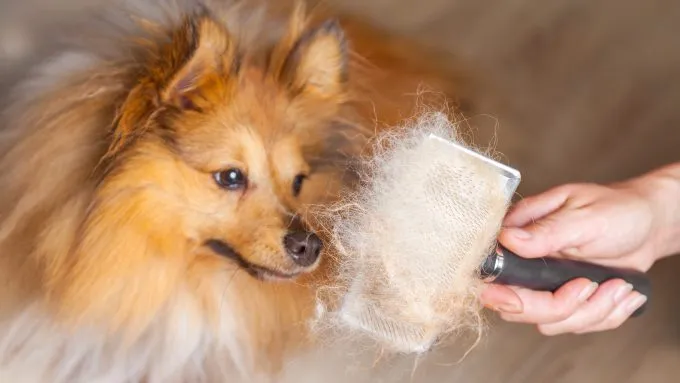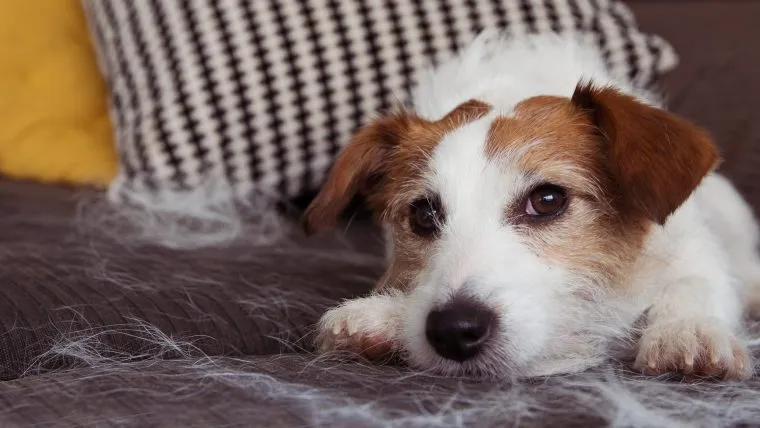
Long-haired dogs can leave behind a LOT of hair. However, even short-haired breeds can leave unwanted pet hair all over your couch or carpeting. Luckily, there are many steps you can take to effectively deal with your dog shedding. Here’s more about why dogs shed and how you can handle it.
Common reasons for dog shedding
While some breeds are more prone to shedding, such as double-coated dogs like the Golden Retriever, every dog sheds their hair. Even hypoallergenic breeds, like Miniature Poodles, will shed some hair, though it may be less noticeable than others. Coat shedding can happen for many reasons. Your dog’s coat will naturally fall out and be replaced with new hair over time. This includes instances such as seasonal coat shedding and the regular falling out of old hair as new hair grows in.
However, there can sometimes be a medical condition behind excessive shedding. If you do notice your dog is shedding a lot, even with proper care and grooming, it’s a good idea to speak with your vet. They can rule out health issues such as metabolic diseases like hypothyroidism or Cushing’s disease, nutritional deficiencies, and skin issues. Luckily, most medically-caused shedding issues are easily treated with a change in diet and medication to correct health problems.
How to deal with shedding
Routine grooming is the best way to deal with shedding. This removes the hair directly from your dog’s body before it has a chance to get stuck on the couch or fall into your carpets. Each breed needs a varying level of grooming, so it’s a good idea to research breeds before you decide on one. Some only require daily brushing while others may need regular trips to a groomer for full trims and deshedding. Regardless of your dog’s coat length, you should brush them at least weekly, if not daily.
It’s good to have a few tools on hand for grooming your dog. Deshedding tools, such as the FURminator, help remove the excess hair that can get stuck in your dog’s coat. Other brushes are great for gently removing dead hair without yanking on sensitive areas of your dog’s skin. Grooming gloves and bathing brushes can also help loosen up dead hair during shampooing, making it easier to remove with a brush. If you notice a mat, grooming clippers and a detangling spray can remove the worst part so the rest of the hair can be brushed free.
Home tools are also important to remove hair from fabric and furniture. A pet tape roller can remove hair from your clothing or objects that can’t be washed. Fur brooms and vacuums designed to pick up pet hair can reach nooks and crannies and remove hair embedded into the carpet.
Learn more about shedding
Worrying about shedding doesn’t have to deter you from enjoying your home with your dog. By following a regular grooming routine, you can help reduce the amount of hair around the house. For more information on dealing with dog shedding, check out our tips for handling spring shedding, as well as ways to design a pet-friendly home.









